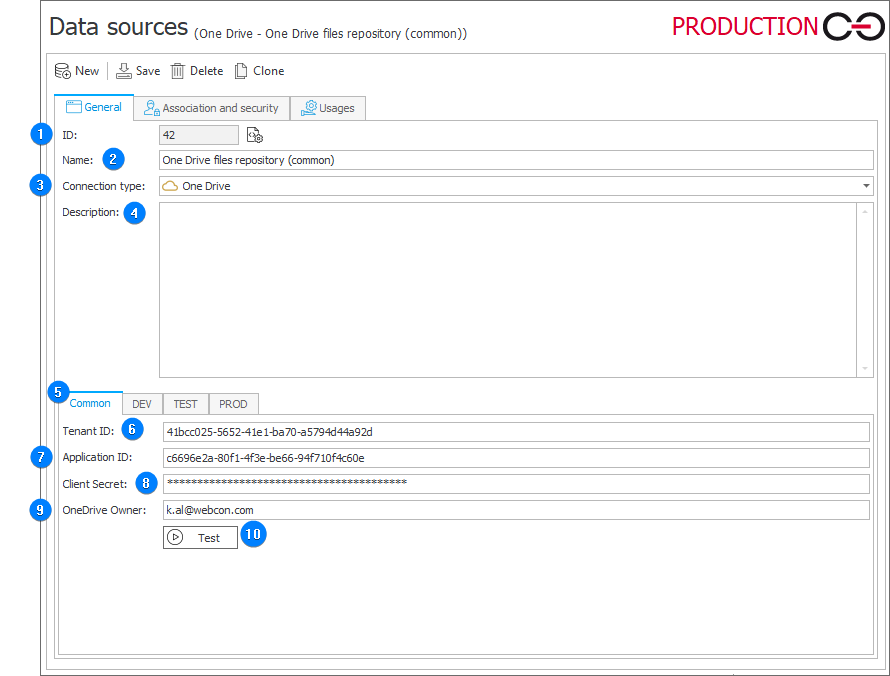OneDrive
The data source allows you to establish connection and retrieve database from the OneDrive service.
The connection configuration allows you to enter different parameters for the DEV/TEST/PROD environments. The connection, like all other connections in the system, is transferred via the Import/Export mechanism, i.e. the connection appears in the tooltip when importing files when used in the process.
The connection ID is saved in the metadata of attachments so that the user can work with the right file from the form level. If a file has been checked out in OneDrive and the connection on which the operation was performed has been deleted in the meantime, the file will remain in the OneDrive location.

1. ID
The data source identifier (if the value is smaller than "0", the source has not been saved in the database yet).
2. Name
Name of the data source entered by the user.
3. Connection type
The field allows you to specify a connection type. You can choose from: MSSQL Database, Oracle Database, Exchange Server, OneDrive, SharePoint Site Collection, REST Web Service, and SOAP Web Service.
4. Description
Description of the data source entered by the user.
5. Environment
Defines the behavior of the data source in particular environments. The Common tab sets the default parameters that are to be used across all three environments (DEV/TEST/PROD). The tabs dedicated to the individual environments can be used to enter custom parameters. In such case, it is necessary to check the Break inheritance checkbox (this will override the settings specified in the Common tab) and then enter the desired connection settings.
6. Tenant ID
The Tenant ID in the Microsoft Entra ID service.
7. Application ID
Application ID used for authentication.
8. Client Secret
Application/client secret.
9. OneDrive Owner
Owner of OneDrive space where documents are stored (a dedicated technical account is required).
10. Test
Testing the connection to the OneDrive server.